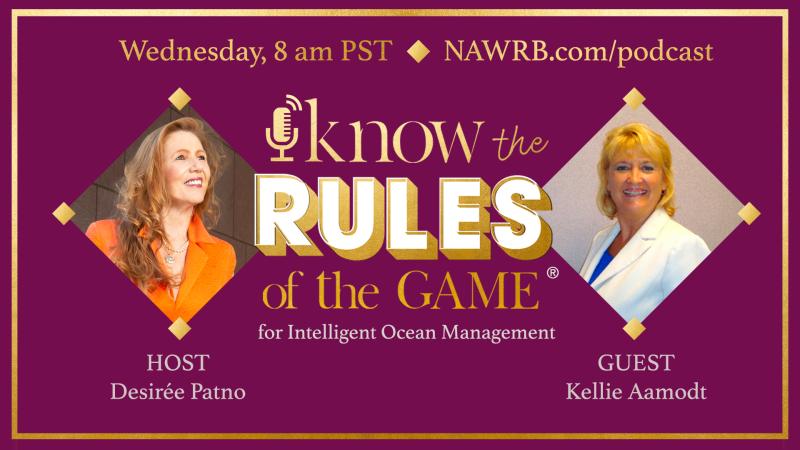Listen now for an all new episode of Know the Rules of the GameⓇ for Intelligent Ocean Management with your host Desiree Patno, CEO & President of NAWRB, and guest Kellie Aamodt, Board Member of Marine Research and Exploration (MARE), and Former UPS, VP of Corporate Inside Sales. Desiree and Kellie, along with MARE representatives Erin O’Toole, Director of Development, and Natasha Benjamin, Policy & Outreach Director, discuss important things to know about deep subtidal ecosystems and ocean conservation/recovery. Listen here: https://www.nawrb.com/podcast/ or listen on YouTube here!
California has been a leader in ocean health solutions since implementing a network of protected areas in 1999. Marine Research & Exploration (MARE) has been working with the state for over 16 years to monitor and document ocean health, in order to understand the impacts of those protections and measure change over time to adaptively manage and steward this precious resource. MARE has developed the technology and processes that are now statewide standards. Watch the amazing video https://youtu.be/hX_1g7O3t6I
Three Rules for Intelligent Ocean Management
- Exploration is critical and undervalued: With 95 percent unexplored, we know more about Mars than our ocean. It’s a fluid (pun intended) situation with climate change as warming, acidifying waters have dramatic effects on sea life. But you can’t protect what you don’t know is there; conversely, if you can see a problem you can solve a problem. We need to know more about our ocean, especially challenging terrain like the biodiverse continental shelf. Visit maregroup.org/expeditions to see some of this work in action!
- Consumers have a lot of power to change this trend through purchasing power and choices: Over 3 billion people depend on the ocean for their primary source of protein. The ocean’s food security is neither infinite nor invincible, and the global “we” can and are depleting it. For example, 90 percent of the big ocean fish, like Atlantic salmon, tuna, halibut, and swordfish are gone. Check out seafoodwatch.org to inform your seafood choices!
- Make informed and responsible choices when in and around the ocean, and invest in marine conservation activity: Strong protection or management of at least 30% of the ocean by 2030 is recommended by scientists to build the resilience of ocean life to adapt to climate change and buffer from other threats like overfishing. This is commonly referred to as “30×30.” California is at approximately 16%, Hawaii is at nearly 6%, so we’ve got a ways to go. This is a global issue and requires urgent and collective action. For the general public, this means making informed and responsible choices when in and around the ocean, and investing in marine conservation activity (e.g., advocacy, donation and volunteerism).
Sign up for MARE’s newsletter, follow them on social media, and find out how to support and get more involved on their website: www.maregroup.org
If you missed any of our previous incredible podcasts, no worries, we got you covered! https://www.nawrb.com/podcast/

 Login
Login

